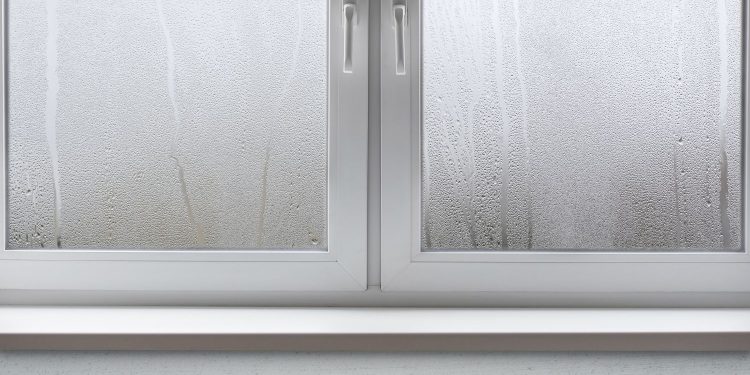To keep your health and your home in the best possible condition, make sure to keep an eye out for these signs that the air in your house is too humid.
Dry air can cause a variety of problems, from irritated skin to an increased risk of catching respiratory illnesses to home damage. That said, it’s important to avoid overcompensating by cranking your humidifier up. Unfortunately, humidity levels that exceed 50 percent can cause a host of issues as well. You can maintain your health and your home by keeping an eye out for these signs that the air in your house is too humid.
Foggy Windows
If you notice condensation developing on your windows, you know there’s a good chance that the humidity levels in your home might be getting a bit too high. Because humidity is essentially just vaporized, airborne water, it will often accumulate on windows and give them a slight foggy appearance. In such a case, you should consider taking measures to reduce the humidity in your home. One of the easiest ways to do so is simply by adjusting the settings on your AC system.
Mold and Mildew Growth
Another sign that the air in your house is too humidis mold and mildew growth. Mold and mildew thrive in damp environments. Thus, the more moisture present in your air, the higher the potential for such organisms to develop. To avoid a potentially dangerous and destructive outbreak, make sure to get your home’s moisture levels under control.
Rotting Wood
Excess moisture in the air can also cause wood to rot. As previously stated, high levels of dampness can increase the potential for fungi growth. If the wood in your home becomes too moist, fungi may begin to grow inside of it, which will ultimately cause it to decay. Because rotting wood can significantly weaken your home’s foundation, you should call a professional immediately to remedy the issue.
Strange Smells
In addition to harming your home, mold and mildew can give off a slight musty scent. Thus, strange smells floating around your home may also indicate that you have a humidity issue. If you notice this smell, mold could be lingering somewhere in your house out of sight.



